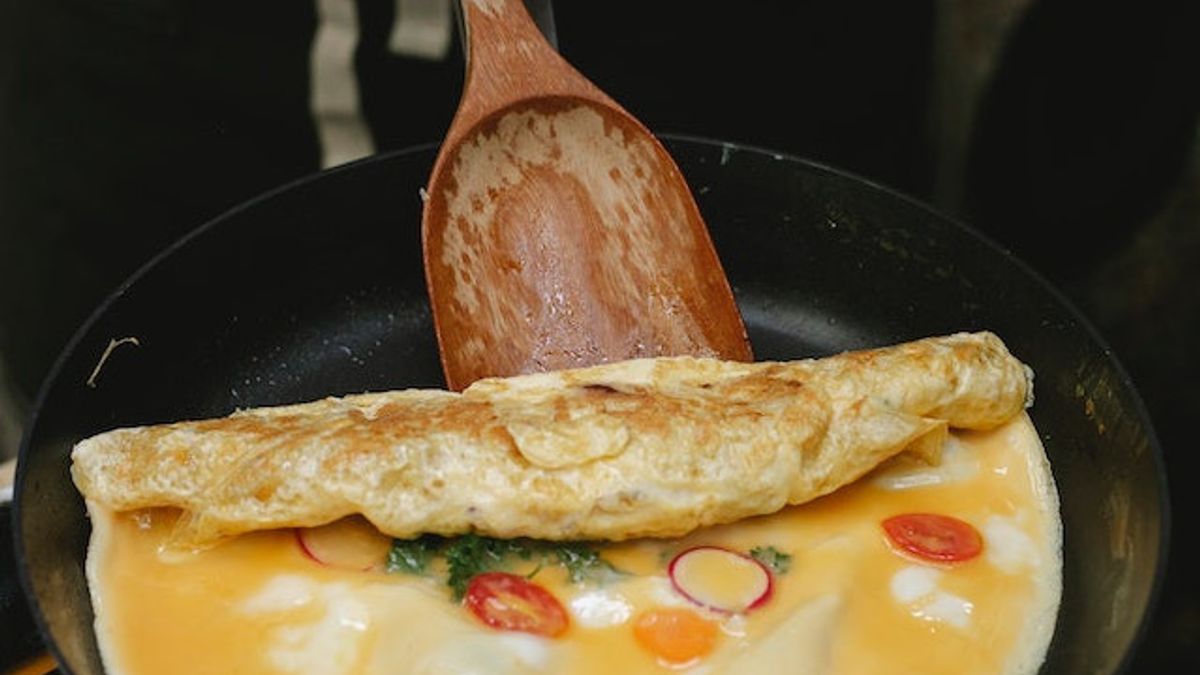JAKARTA - Anti-stick cooking equipment is an object that is used almost every day for cooking. Therefore, special attention and care are needed so that the use of this anti-stick cooking utensil can last a long time.
If used carelessly, the glossy layer above the surface can be eroded and scratched so that the antistick does not work properly.
If most of the cooking utensils in your home are anti-sticky. Then you can watch this article until it runs out to know how to properly care for the equipment.
The use of pans is incomplete without spatula. There are four spatula ingredients commonly used, namely wood, silicon, nylon and most often used, namely stainless steel. Launching Southern Living, Monday, November 28, spatula made of wood, silicon, and nylon must be used for anti-stick pans.
The reason is, cooking utensils from stainless steel will scratch the anti-stick layer. In addition, broken pans can stick to dishes. If this is the case, your pan loses its anti-stick function and makes food quickly scorched.
Anti-sticky cooking utensils are made for use above moderate fire. The temperature is too hot causing the outer layer of the pot to peel off. If you want to use high temperature, try looking for anti-sticky cooking utensils made from aluminum. Because these ingredients are more resistant to a higher temperature. However, the resistance of an anti-stick pan can decrease over time if you continue to cook at high temperatures.
In addition to temperature, avoid the use of high acids such as tomatoes, lime, or lemons in anti-sticky cooking utensils. Food ingredients with high acid content can cause anti-sticky layers to be damaged. Another ingredient that should be avoided is cooking oil that has low smoke points. This is because oils with low smoke points, such as olive oil, can burn and damage the surface of cooking utensils. The type of oil that is better is cooking oil with high smoke points, such as canola, avocado, or coconut.
Thenealing machine is indeed easy but this is not suitable for washing anti-sticky cooking utensils. High heat and strong water pressure can separate the anti-stick layer from the pot and cause exfoliation.
The best way is to always wash your cooking utensils with your hands. And let the cold cooking utensils be washed first. Putting cold water into a hot pot can cause a twist. Use a gentle sponge to clean and avoid cleansing the surface of the antilengket with abrasive ingredients and dry it with a cloth.
If an anti-sticky pan has a lot of cypress, use soda cake to remove it. How, mix one tablespoon of cake soda with enough water to form pasta. Then, take a gentle sponge, and brush off your stored deposits and residue until they disappear.
How to store anti-sticky cooking utensils also plays an important role in keeping it durable. Place a rack coating or towel on top of the anti-stick surface if you will accumulate other cooking utensils on top of it. This will protect the anti-stick layer so that it is not scratched by the bottom of the pan and other pans. You can also store an anti-stick pan by hanging.
The English, Chinese, Japanese, Arabic, and French versions are automatically generated by the AI. So there may still be inaccuracies in translating, please always see Indonesian as our main language. (system supported by DigitalSiber.id)









